
Judas Priest’s K.K. Downing Returns to Music
by Martin KieltyFormer Judas Priest guitarist K.K. Downing announced a return to music after a one-off show he played in November.
He’s been largely inactive since quitting Priest in 2011, though he’s talked about his desire to return to the band in recent years – a proposal that was rejected by his former bandmates.
After a guest spot at a U.K. festival last August, Downing appeared onstage with Megadeth bassist David Ellefson and ex-Priest members Tim “Ripper” Owens and Les Binks at his Steel Mill venue in Wolverhampton, which led to the announcement of his return to action.
“After what was meant to be a one-off live performance in November, K.K. Downing has been in the studio, working on the next chapter of his career,” a statement read. “After receiving offers from multiple labels and management companies, Downing met with Paul Woolnough, CEO of Explorer1 Music Group and the creator of its innovative business model, and they agreed to partner. … K.K. Downing’s genre-defining guitar style helped establish Judas Priest‘s iconic sound and helped propel them to one of the top heavy metal bands of all time, earning numerous accolades, including a Grammy in 2010 for Best Metal Performance, a total of five Grammy nominations and multi-platinum and gold releases.”
“The reason I chose Explorer1 to manage my future over many other bona fide companies is their extensive roster of so many familiar and qualified experts and veterans of the industry that is surely incomparable," Downing said. "Also, their exciting and innovative business model is something that I truly believe will become the future industry standard, making Explorer1 leaders, not followers, in the music and entertainment industry.”
Further details of Downing’s plans will be announced soon.
Judas Priest Lineup Changes: A Complete Guide
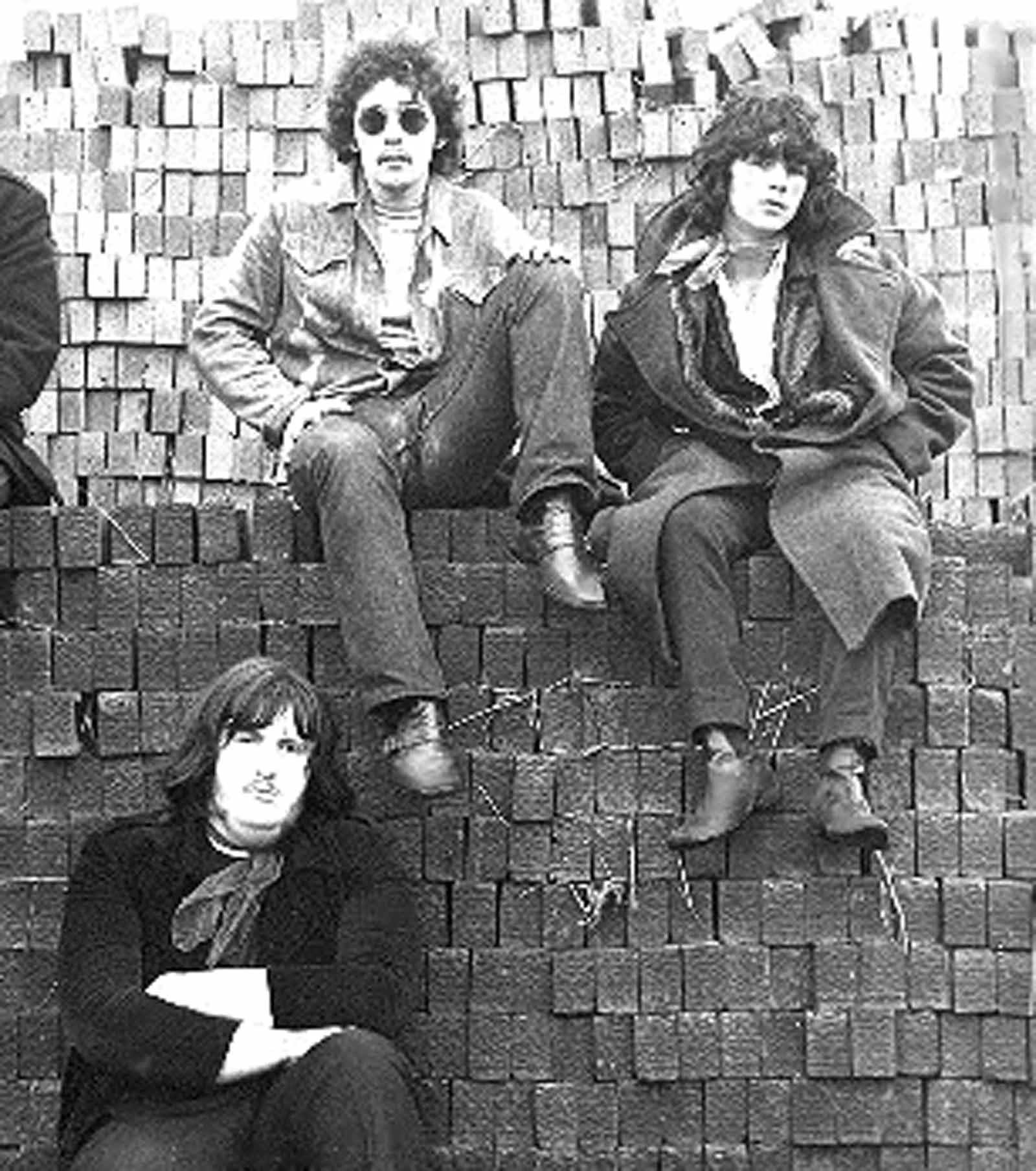
1968-1969 (The Jug Blues Band): Al Atkins / Bruno Stapenhill / John Perry / Jim Perry / Barry Civic
Judas Priest's roots can be traced back to the Jug Blues Band, fronted by singer Al Atkins. They played small-time gigs in and around the Birmingham area for less than a year before disbanding in the summer of 1969.

1969-1970: Al Atkins / Ernie Chataway / Bruno Stapenhill / John Partridge
Atkins, Stapenhill and John Perry soon formed the first version of Judas Priest, named by Stapenhill after the Bob Dylan song "The Ballad of Frankie Lee and Judas Priest." Perry died soon after and was replaced by Ernie Chataway. However, this band broke up almost immediately.

1970-1971: Al Atkins / K.K. Downing / Ian Hill / John Ellis (1971: Ellis Replaced By Alan Moore)
After the breakup, Atkins joined a singer-less band named Freight - which consisted of guitarist Kenneth ‘K.K.’ Downing, bassist Ian Hill and drummer John Ellis (left in the photo above). The quartet took over the Judas Priest moniker and began making steady career headway in local clubs once they replaced their early blues style with one more suited to the emerging heavy metal and progressive rock trends. But Ellis eventually chose the security of his day job over Priest and was replaced, first by Alan Moore (right in the photo above)...
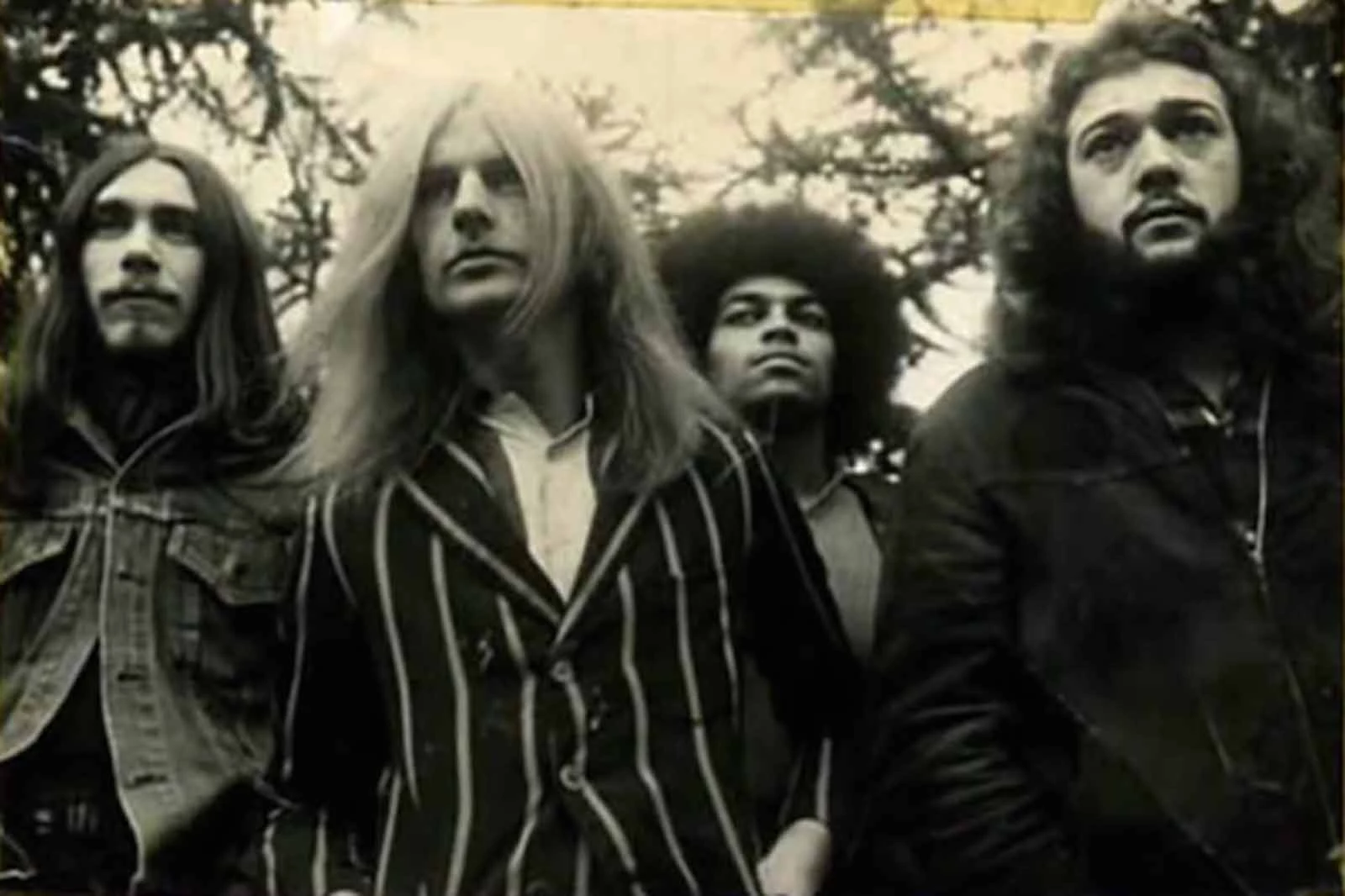
1971-1973: Al Atkins / K.K. Downing / Ian Hill / Chris Campbell
...then by Chris ‘Congo’ Campbell, pictured here with Hill, Downing, and Atkins — thus inaugurating Judas Priest’s long and Spinal Tap-like tradition of short-term drummers. Although thankfully, none have actually exploded on stage.

1973-1974: Rob Halford / K.K. Downing / Ian Hill / John Hinch
By 1973, Judas Priest had cut a few demos, toured the U.K. in support of bands like Budgie, Thin Lizzy and secured management by Black Sabbath guitarist Tony Iommi’s IMA agency. But a recording contract continued to elude them, so a cash-strapped Atkins decided to quit, followed in short order by Campbell, which opened the door for a new frontman named Rob Halford (whose sister was dating bassist Ian Hill) and his Hiroshima bandmate, drummer John Hinch. It was this quartet that spent the next year honing Judas Priest’s repertoire until it was ready to attract that long awaited label contract from independent Gull Records.

1974-1975: Rob Halford / K.K. Downing / Glenn Tipton / Ian Hill / John Hinch
There was one last piece of the Judas Priest puzzle missing as the excited young group prepared to record its 1974 debut album, ‘Rocka Rolla,’ and that was a second guitarist to beef up their sound. Enter Glenn Tipton, late of the Flying Hat Band, on the recommendation of ‘Rocka Rolla’ producer Rodger Bain (who had made his name on Black Sabbath’s first three albums). One could very well argue that Judas Priest wasn’t whole until Tipton’s axe was added to Downing’s, launching one of heavy metal’s greatest six-string tandems.
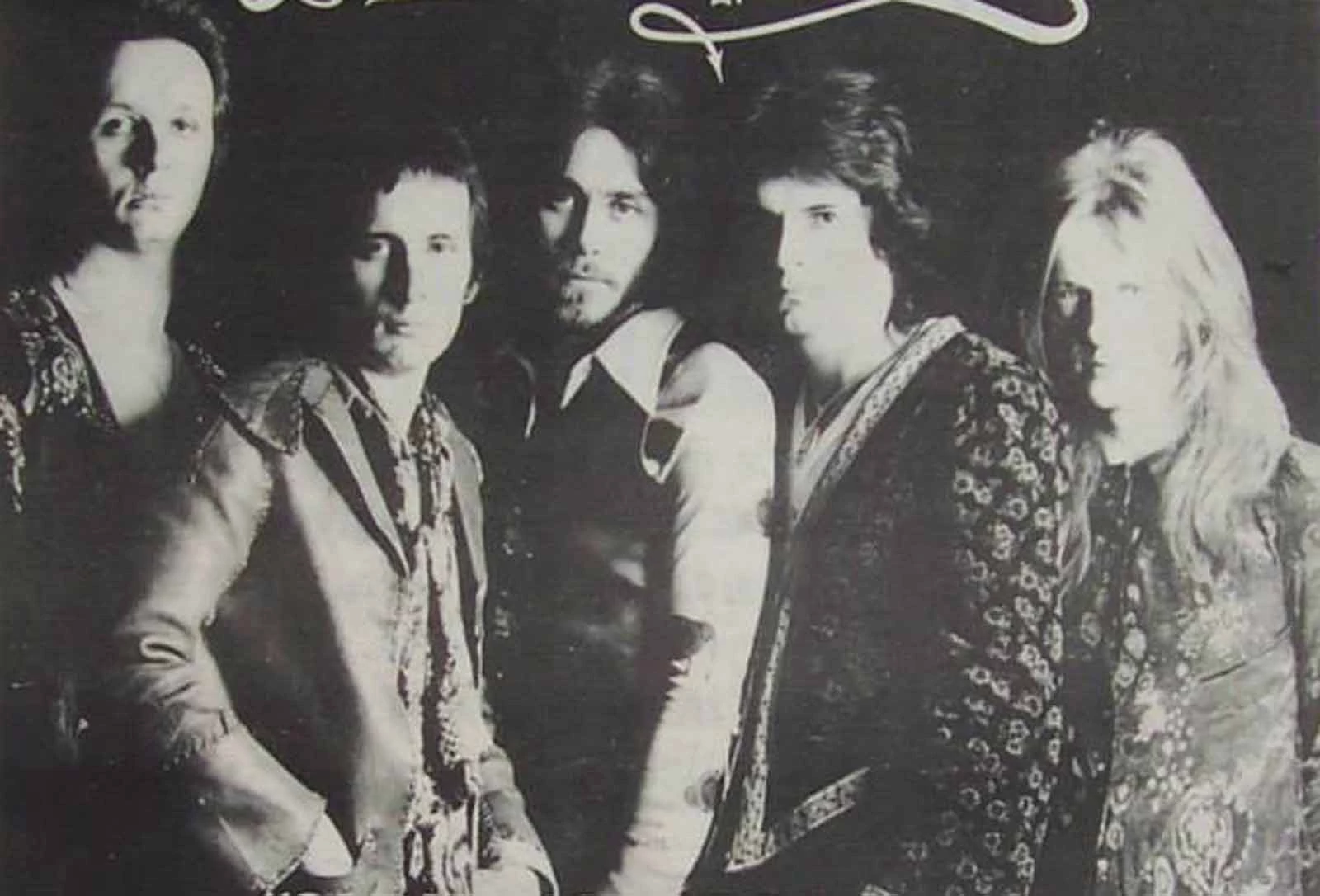
1975-1976: Rob Halford / K.K. Downing / Glenn Tipton / Ian Hill / Alan Moore
Judas Priest’s recording career got off to a rocky start, based on ‘Rocka Rolla’s’ weak sales and Gull’s limited promotional muscle. They were forced to tour non-stop to avoid starvation. Things only started looking up once Tipton’s songwriting contributions had some time to fuse with Downing’s and Halford’s to form the backbone of 1976’s seminal ‘Sad Wings of Destiny.’ This marked the end of Priest’s association with Gull Records in order to sign with major label Columbia, as well as their brief second stint with drummer Alan Moore, who soon chose to pursue other musical projects.

1977 'Sin After Sin' Recording: Rob Halford / K.K. Downing / Glenn Tipton / Ian Hill / Simon Phillips
As 1976 became ’77, Judas Priest found themselves in desperate need of a drummer with which to record their third LP, ‘Sin After Sin,’ which was set to be produced by former Deep Purple bassist Roger Glover. In a pinch, they called on session drummer Simon Phillips (Jeff Beck, the Who, Toto) who performed his duties admirably, but declined to join the group more permanently.
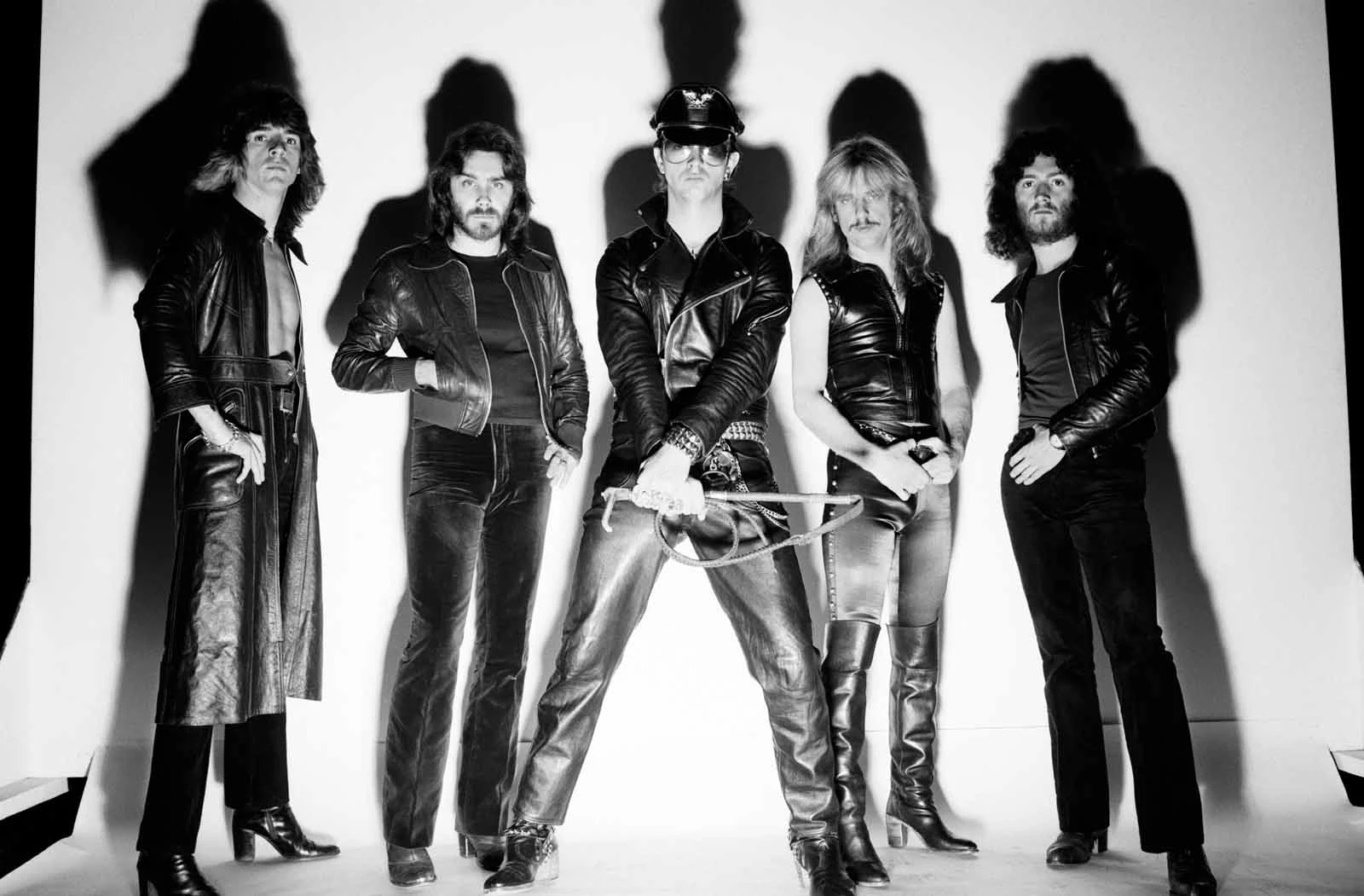
1977-1979: Rob Halford / K.K. Downing / Glenn Tipton / Ian Hill / Les Binks
Luckily, Roger Glover introduced them to the highly accomplished Les Binks, who would stick around until 1979 and contribute both his inventive percussive and songwriting talents (see ‘Beyond the Realms of Death’) to classic LPs like ‘Stained Class’ and ‘Hell Bent for Leather.'

1979-1989: Rob Halford / K.K. Downing / Glenn Tipton / Ian Hill / Dave Holland
By 1979, Priest were looking to further simplify their sound and see what could it could accomplish for them in America, so they parted amicably with Binks and hired longtime Trapeze drummer Dave Holland prior to recording 1980’s commercial watershed ‘British Steel.’ This quintet of Halford, Tipton, Downing, Hill and Holland would go on to rule the decade, with hit albums like ‘Screaming for Vengeance,’ ‘Defenders of the Faith’ and ‘Turbo.’ To many fans, this is still the definitive Judas Priest lineup. (Holland died in 2018.)

1989-1992: Rob Halford / K.K. Downing / Glenn Tipton / Ian Hill / Scott Travis
A change was announced through the powerful double kick-drum tattoo announcing the ‘Painkiller’ album’s devastating title track, and they exploded from the fleet feet of new drummer Scott Travis. Judas Priest’s first American-born band member, Travis was recruited from technical metal virtuosos Racer X and retains the band’s drum stool unto this day. (Clearly, Priest have gotten better at this drummer thing.) But that tenure didn’t come without a long and unforeseen interruption, forced by Halford’s shocking decision to quit Priest at the peak of their powers to explore various side projects.

1996-2003: Tim ‘Ripper’ Owens / K.K. Downing / Glenn Tipton / Ian Hill / Scott Travis
For five long years, Judas Priest waited on Halford to return. In 1996, they finally moved on after discovering Tim ‘Ripper’ Owens in an Ohio-based Priest tribute band named British Steel. For a little while, Owens seemed almost too good to be true, bringing his unquestioned vocal prowess to 1997’s powerful comeback, ‘Jugulator,’ and to a lesser degree, 2001’s rather lackluster ‘Demolition.’ But for all his talent and bonhomie, Owens simply wasn’t Rob Halford. And though his amazing story even inspired the film ‘Rock Star,’ his time in the group eventually came to an end with the metal god’s 2003 return.

2003-2011: Rob Halford / K.K. Downing / Glenn Tipton / Ian Hill / Scott Travis
With Halford back, Judas Priest embarked on yet another golden era, ushered in by triumphant performances during the 2004 Ozzfest tour, where they performed second only to headliners Black Sabbath (their old Birmingham big brothers), and succeeded in the almost-impossible task of following thrash metal kings Slayer. 2005’s ‘Angel of Retribution’ (their 15th studio LP) enjoyed widespread acclaim and 2008’s ‘Nostradamus,’ though selectively criticized for the folly of its ambitious two-CD concept, did nothing to taint the band’s popularity.
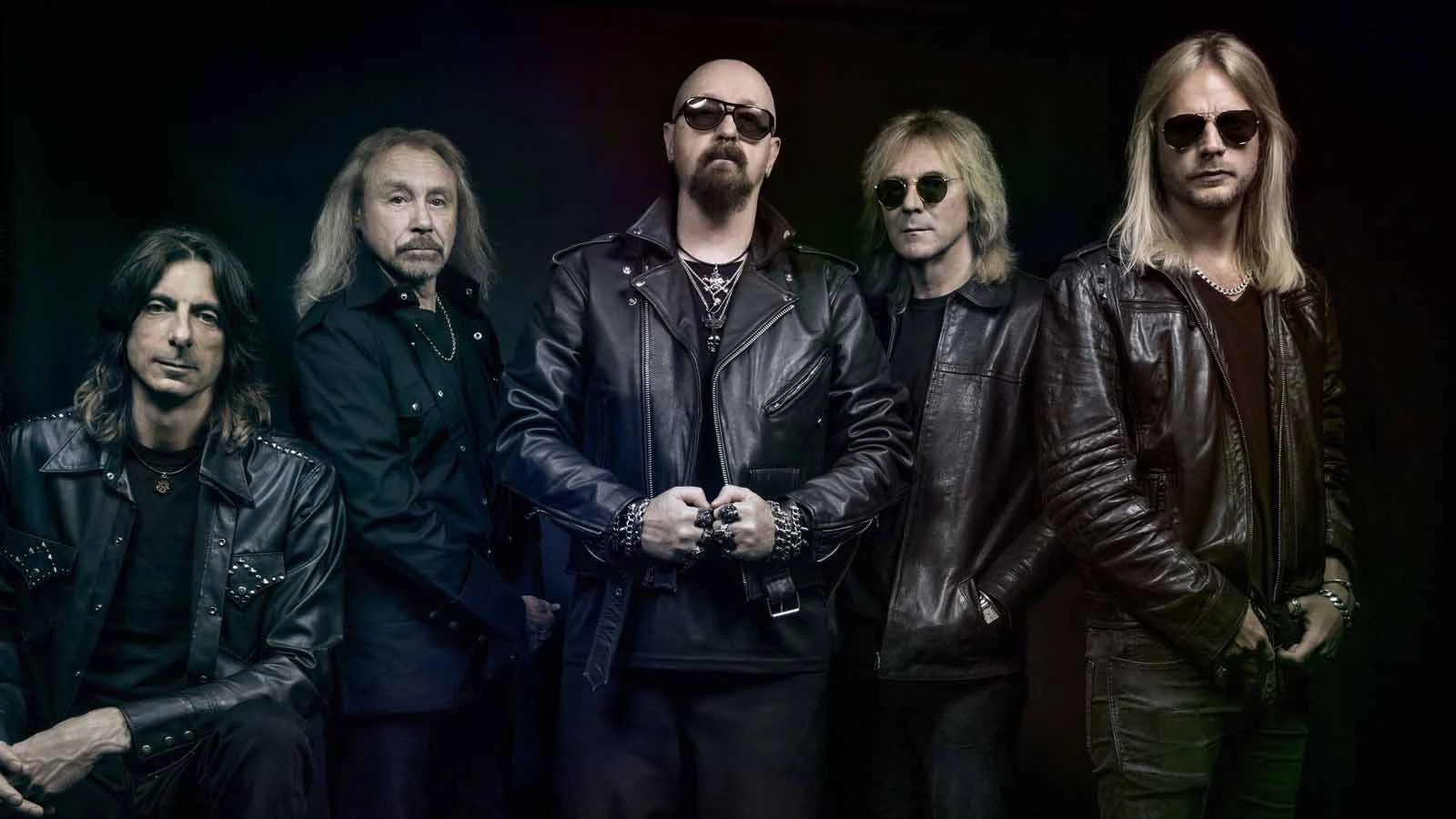
2011-2017: Rob Halford / Glenn Tipton / Richie Faulkner / Ian Hill / Scott Travis
In 2011, Judas Priest publicly revealed their intentions to wind down their touring and maybe even recording career. After founding guitarist K.K. Downing announced his immediate retirement, the band drafted a young-and-bright-eyed six-string replacement in London-born Richie Faulkner for a farewell tour named 'Epitaph.' However, apparently inspired by Faulkner's energy, the rest of the band had a change of heart and decided not to call it a career after all. "To some extent Richie saved Judas Priest," Halford said, "because if we hadn’t have found him at the crucial time that we were looking for a guitar player things could have turned out quite differently."

2018 - Present: Rob Halford / Glenn Tipton / Richie Faulkner / Ian Hill / Scott Travis / Andy Sneap (touring in Tipton's place)
In February 2018, Judas Priest revealed that Glenn Tipton had been battling Parkinson's Disease for more than a decade, and would be reducing his touring role with the group significantly as a result. Producer and Hell guitarist Andy Sneap was announced as his live fill-in.